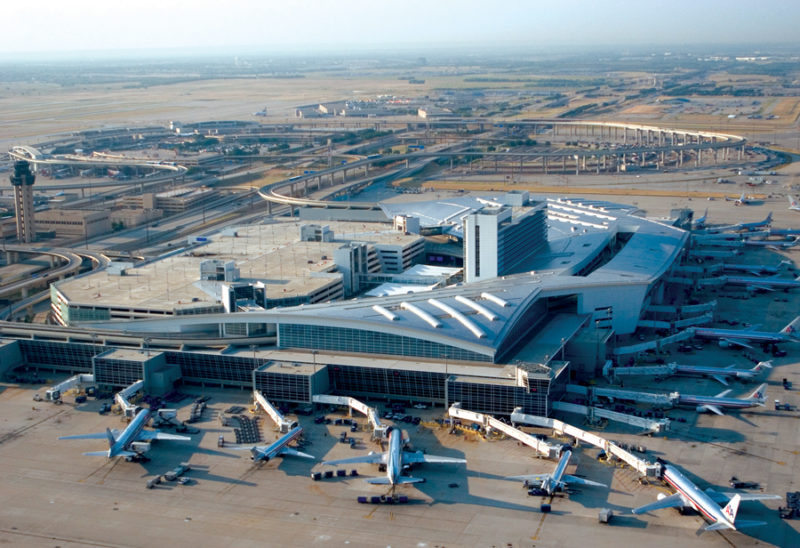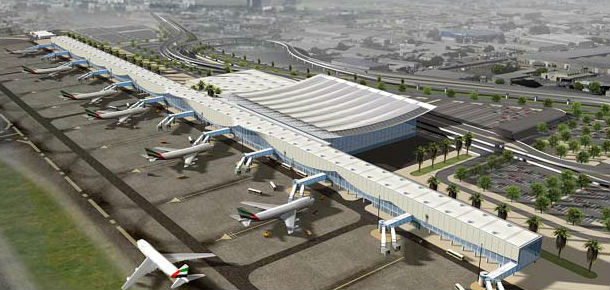The Delhi Indira Gandhi International Airport in New Delhi, India, has become the first carbon neutral airport in Asia-Pacific. Similarly, the Dallas Fort Worth International Airport in Texas, USA, has been named North America’s first carbon neutral airport.

The two airports were recently named along with France’s Nice Cote d’Azur Airport, located southwest of Nice, as being carbon neutral, bringing the total number of airports in that category to 170.
While the Indira Gandhi International Airport serves as the primary civilian aviation hub for the National Capital Region of Delhi, the Dallas/Fort Worth International Airport is the primary international airport serving the Dallas–Fort Worth area in the U.S. state of Texas. It is the largest hub for American Airlines, which is headquartered near the airport.

The disclosure was made at the 39th International Civil Aviation Organisation (ICAO) Assembly that held last week in Montreal, Canada, where stakeholders agreed on a Global Market Based Measure to address international airline emissions. As is customary, Airports Council International released the annual results for the Airport Carbon Accreditation programme covering the period June 2015 to June 2016, to report on how the global airport industry is delivering on its commitment to lower its own CO2 emissions, made in 2007.
Now in its seventh year, the global programme certifies airports at four different levels of accreditation covering all stages of carbon management (Mapping, Reduction, Optimisation and Neutrality). It is independently administered, institutionally-endorsed and has already won praise from the United Nations Framework Convention on Climate Change (UNFCCC), ICAO, the United Nations Environment Programme (UNEP), the US Federal Aviation Administration (FAA) and the European Commission (EC).
Announcing the annual results, Angela Gittens, Director General, ACI World, commented: “It’s been an incredible year for Airport Carbon Accreditation, with applications to the programme still increasing and new developments such as the important partnership with the UNFCCC and its Climate Neutral Now initiative signed at the COP21 climate negotiations. In terms of results, in the past year, accredited airports succeeded in collectively reducing the CO2 emissions under their direct control by 206,090 tonnes of CO2 – enough energy to power over 86,000 households for a year.”
She added: “The momentum keeps building. As of this week, we now have 170 airports in the programme and over 36% of global air passenger traffic – well over two billion passengers – now travel through airports certified at one of the four levels of the programme. I also particularly want to congratulate the latest airports to become carbon neutral – Nice Cote d’Azur Airport, Dallas Fort Worth International Airport – North America’s first carbon neutral airport – and Delhi Indira Gandhi International Airport – the first carbon neutral airport in Asia-Pacific.
“These recent accreditations highlight that carbon neutrality is no longer just a goal shared by airports worldwide – with 26 such airports now in the programme, it is becoming a tangible reality. The constant efforts of airports to move up the levels in the programme is one of the reasons for the success of Airport Carbon Accreditation.”
Patricia Espinosa, Executive Secretary of the UNFCCC, commented: ‘’COP21 was about engaging governments at the highest level, but effective climate action must also be significantly supported by a progressive private sector – sustainability is everyone’s responsibility. What Airport Carbon Accreditation has achieved over the past seven years is both surprising and inspiring. By charting a clear path airport operators are acting across a range of measures, from mapping their CO2 emissions, reducing them and engaging others, up to becoming carbon neutral too – there is much that other industries can learn from this and even emulate.”
The annual results of Year 7 (2015-2016) of Airport Carbon Accreditation are available here.
